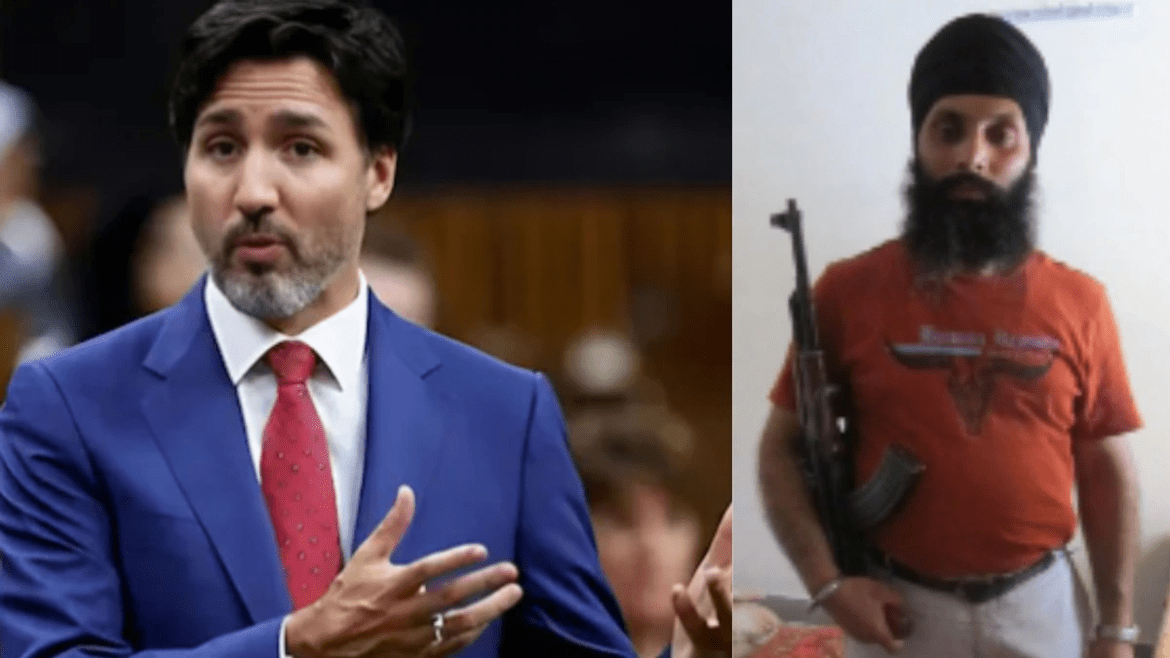AI Generated Summary
- If Trudeau’s administration is unwilling to back its words with actions, it risks isolating itself on the world stage, appearing less as a champion of justice and more as a state turning a blind eye to terrorism for political convenience.
- Nijjar, who was shot outside a Gurdwara in Surrey, British Columbia, last year, held Canadian citizenship but was designated a terrorist by India in 2020 due to his involvement in extremist activities aimed at destabilizing India.
- Canada, a nation that prides itself on its commitment to the rule of law and human rights, should be the first to align itself with efforts to eliminate global terrorism.
In a disturbing revelation, the National Investigation Agency (NIA) of India has yet to receive the death certificate of Khalistani terrorist Hardeep Singh Nijjar, despite requesting it from Canadian authorities. Nijjar, who was shot outside a Gurdwara in Surrey, British Columbia, last year, held Canadian citizenship but was designated a terrorist by India in 2020 due to his involvement in extremist activities aimed at destabilizing India. The Canadian government’s hesitation to cooperate raises questions about its commitment to combatting terrorism and its broader diplomatic stance with India.
Prime Minister Justin Trudeau’s allegations last year in the Canadian Parliament, claiming “credible allegations” of India’s involvement in Nijjar’s killing, only intensified the rift between the two countries. India, unsurprisingly, dismissed these allegations as “absurd” and “motivated,” insisting that Canada harbors anti-India elements and provides a safe haven for extremists. The exchange has not only highlighted the deepening mistrust between Ottawa and New Delhi but also underscored Canada’s lack of tangible evidence to substantiate its claims, despite Trudeau’s dramatic pronouncements.
The Canadian government’s recent request to know why India’s NIA seeks Nijjar’s death certificate is a glaring example of its reluctance to engage seriously with India’s legitimate security concerns. If Canada truly believes in the importance of international cooperation and accountability, the reasoning behind such a request should be clear: India’s investigation into Nijjar’s activities and networks cannot proceed without the necessary documentation. This bureaucratic impasse, deliberate or otherwise, only serves to delay and disrupt the pursuit of justice.
Canada’s stance is further compromised when we consider its silence and inaction regarding another designated terrorist, Gurpatwant Singh Pannun. Pannun, who holds both Canadian and American citizenships, has been actively involved in anti-India propaganda and secessionist activities through his organization, Sikhs for Justice (SFJ). India’s NIA has attached his properties in Chandigarh and seized land parcels in Amritsar as part of their ongoing investigation. Yet, Canada’s response to such individuals who openly promote violence and division remains muted. Instead of supporting India’s efforts to combat terrorism, Canada seems more focused on protecting individuals whose actions directly undermine peace and stability in South Asia.
This isn’t merely a diplomatic tiff; it is about the principles of justice, sovereignty, and international cooperation. Canada, a nation that prides itself on its commitment to the rule of law and human rights, should be the first to align itself with efforts to eliminate global terrorism. However, its inconsistency when dealing with extremists from the Khalistani movement—many of whom enjoy freedom of movement and expression in Canada—exposes a troubling double standard.
If Canada is serious about its role in the international community, it must do more than make unsubstantiated accusations. It must show willingness to work with India to bring extremists like Nijjar and Pannun to justice. The hesitancy in sharing something as straightforward as a death certificate reflects a larger issue: a reluctance to acknowledge and act against the anti-India elements thriving on Canadian soil.
Prime Minister Trudeau’s government needs to realize that no country can be seen as a credible partner in counterterrorism while simultaneously providing a platform for terrorists. As India’s investigations into the activities of Nijjar and Pannun continue, Canada’s cooperation—or lack thereof—will be a litmus test of its commitment to global security. If Trudeau’s administration is unwilling to back its words with actions, it risks isolating itself on the world stage, appearing less as a champion of justice and more as a state turning a blind eye to terrorism for political convenience.
India and Canada, both democracies with much to gain from mutual cooperation, must move beyond the rhetoric and focus on dismantling the networks of extremism that threaten their relationship. However, this requires political will from both sides. For Canada, that begins with transparency and an earnest effort to collaborate, not obfuscate.




